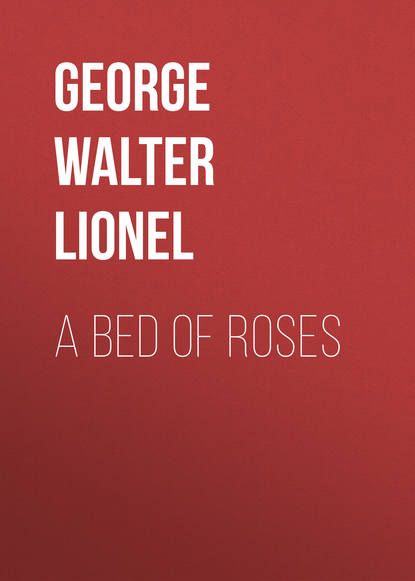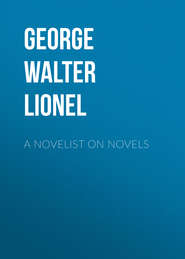По всем вопросам обращайтесь на: info@litportal.ru
(©) 2003-2024.
✖
A Bed of Roses
Настройки чтения
Размер шрифта
Высота строк
Поля
Victoria thought for a moment. Reminiscences of political economy told her that there were booms and slumps.
'Has trade been good lately?' she asked suddenly.
'No, not for the last two years or so. It's picking up though..'
'Ah, then we're in for a cycle of good trade. I think I'll have some industrials. You might pick me out the best.'
The manager seemed a little surprised at this knowledge of commercial crises but said nothing more, and made out a list of securities averaging six per cent net.
'And please buy me a hundred P. R. R. shares,' added Victoria.
She could have laughed at the manager's stony face because he did not see the humour of this. He merely said that he would forward the orders to a stockbroker.
Victoria felt that she had put her hand to the plough. She was scoring so heavily that she never now wished to turn back. Holt was every day growing more dreamy, more absorbed in his thoughts. He never seemed to quicken into action except when his companion touched him. He grew more silent too; the hobbledehoy was gone. He was at his worst when he had received a letter bearing the Rawsley postmark. Victoria knew of these, for Holt's need of her grew greater every day; he was now living at Elm Tree Place. He hardly left the house. He got up late and passed the morning in the boudoir, smoking cigarettes, desultorily reading and nursing the Pekingese which he now liked better. But on the days when he got letters from Rawsley, letters so bulky that they were sometimes insufficiently stamped, he would go out early and only return at night. Then, however, he returned as if he had been running, full of some nameless fear; he would strain Victoria to him and hold her very close, burying his face below the bedclothes as if he were afraid. On one of those days Victoria accidentally saw him come out of a small dissenting chapel near by. He did not see her, for he was walking away like a man possessed; she said nothing of this but understood him better, having an inkling that the fight against the Rawsley tradition was still going on.
She did not, however, allow herself to be moved by his struggle. It behoved her to hold him, for he was her last chance and the world looked rosy round her. As the spring turned into summer he became more utterly hers.
'You distil poison for me,' he said one day as they sat by the rose hung pergola.
'No, Jack, don't say that, it's the elixir of life.'
'The elixir of life. Perhaps, but poison too. To make me live is to make me die, Victoria; we are both sickening for death and to hasten the current of life is to hasten our doom.'
'Live quickly,' she whispered, bending towards him, 'did you live at all a year ago?'
'No, no.' His arms were round her and his lips insistent on hers. He frightened her a little, though. She would have to take him away. She had already confided this new trouble to Betty when the latter came to see her in April, but Betty, beyond suggesting cricket, had been too full of her own affairs. Apparently these were not going very well. Anderson & Dromo's had not granted the rise, and the marriage had been postponed. Meanwhile she was still at the P. R. R., and very, very happy. Betty too, her baby, her other baby, frightened Victoria a little. She was so rosy, so pretty now, and there was something defiant and excited about her that might presage disease. But Betty had not come near her for the last two months.
About the middle of June she took Jack away to Broadstairs. He was willing to go or stay, just as she liked. He seemed so neutral that Victoria experimented upon him by presenting him with a sheaf of unpaid bills. He looked at them languidly and said he supposed they must be paid, asked her to add them up and wrote a cheque for the full amount. Apparently he had forgotten all about the allowance, or did not care.
Broadstairs seemed to do him good. Except at the week end the Hotel Sylvester was almost empty. The sea breeze blew stiffly from the north or the east. His colour increased and once more he began to talk. Victoria encouraged him to take long walks alone along the front. She had some occupation, for two little girls who were there in charge of a Swiss governess had adopted the lovely lady as their aunt. A new sweetness had come into her life, shrill voices, the clinging of little hands. Sometimes these four would walk together, and Holt would run with the children, tumbling in the sand in sheer merriment.
'You seem all right again, Jack,' said Victoria on the tenth morning.
'Right! Rather, by jove, it's good to live, Vicky.'
'You were a bit off colour, you know.'
'I suppose I was. But now, I feel nothing can hold me. I wrote a rondeau this morning on the pier. Want to see it?'
'Of course, silly boy. Aren't you going to be the next great poet?'
She read the rondeau, scrawled in pencil on the back of a bill. It was delicate, a little colourless.
'Lovely,' she said, 'of course you'll send it to the Westminster.'
'Perhaps.. hulloa, there are the kiddies.' He ran off down the steps from the front. A minute after Victoria saw him helping the elder girl to bury her little sister in the sand.
Victoria felt much reassured. He was normal again, the half wistful, half irresponsible boy she had once known. He slept well, laughed, and his crying need for her seemed to have abated. At the end of the fortnight Victoria was debating whether she should take him home. She was in the hotel garden talking to the smaller girl, telling her a wonderful story about the fairy who lived in the telephone and said ping-pong when the line was engaged. The little girl sat upon her knee; when she laughed Victoria's heart bounded. The elder girl came through the gate leading a good-looking young woman in white by the hand.
'Oh, mummie, here's auntie,' cried the child, dragging her mother up to Victoria. The two women looked at one another.
'They tell me you have been very kind.' said the woman. Then she stopped abruptly.
'Of course, mummie, she's not really our auntie,' said the child confidentially.
Victoria put the small girl down. The mother looked at her again. She seemed so nice and refined.. yet her husband said that the initials on the trunks were different.. one had to be careful.
'Come here, Celia,' she said sharply. 'Thank you,' she added to Victoria. Then taking her little girls by the hand she took them away.
Jack willingly left Broadstairs that afternoon when Victoria explained that she was tired and that something had made her low-spirited.
'Right oh,' he said. 'Let's go back to town. I want to see Amershams and find out how those sonnets have sold.'
He then left her to wire to Augusta.
Their life in town resumed its former course, interrupted only by a month in North Devon. Jack's cure was complete; he was sunburnt, fatter; the joy of life shone in his blue eyes. Sometimes Victoria found herself growing younger by contagion, sloughing the horrible miry coat of the past. If her heart had not been atrophied she would have loved the boy whom she always treated with motherly gentleness. His need of her was so crying, so total, that he lost all his self-consciousness. He would sit unblushing by her side in the bow of a fishing smack, holding her hand and looking raptly into her grey eyes; he was indifferent to the red brown fisherman with the Spanish eyes and curly black hair who smiled as the turtle doves clustered. His need of her was as mental as it was physical; his body was whipped by the salt air to seek in her arms oblivion, but his mind had become equally dependent. She was his need.
Thus when they came back to town the riot continued; and Victoria, breasting the London tide, dragged him unresisting in her rear. She hated excitement in every form, excitement that is of the puerile kind. Restaurant dining, horse shows, flower shows, the Academy, tea in Bond Street, even the theatre and its most inane successes, were for her a weariness to the flesh.
'I've had enough,' she said to Jack one day. 'I'm sick of it all. I've got congestion of the appreciative sense. One day I shall chuck it all up, go and live in the country, have big dogs and a saddle horse, dress in tweeds and read the local agricultural rag.'
'Give up smoking, go to church, and play tennis with the curate, the doctor and the squire's flapper,' added Holt. 'But Vicky, why not go now?'
'No, oh, no, I can't do that.' She was frightened by her own suggestion. 'I must drain the cup of pleasure so as to be sure that it's all pain; then I'll retire and drain the cup of resignation.. unless, as I sometimes think, it's empty.'
Jack had said nothing to this. Her wildness surprised and shocked him. She was so savage and yet so sweet.
Victoria realised that she must hold fast to the town, for there alone could she succeed. In the peace of the country she would not have the opportunities she had now. Jack was in her hands. She never hesitated to ask for money, and Jack responded without a word. Her account grew by leaps and bounds. The cashier began to ask whether she wanted to see the manager when she called at the bank. She could see, some way off but clearly, the beacons on the coast of hope.
All through Jack's moods she had suffered from the defection of Betty. On her return from Broadstairs she had written to her to come to Elm Tree Place, but had received no answer. This happened again in September; and fear took hold of her, for Betty had, ivy-like, twined herself very closely round Victoria's heart of oak. She went to Finsbury; but Betty had gone, leaving no address. She went to the P.R.R. also. The place had become ghostly, for the familiar faces had gone. The manageress was nowhere to be seen; nor was Nelly, probably by now a manageress herself. Betty was not there, and the girl who wonderingly served the beautiful lady with a tea-cake said that no girl of that name was employed at the depot. Then Victoria saw herself sitting in the churchyard of her past, between the two dear ghosts of Farwell and Betty. The customers had changed, or their faces had receded so that she knew them no more: they still played matador and fives and threes, chess too. Alone the chains remained which the ghosts had rattled. Silently she went away, turning over that leaf of her life for ever. Farwell was dead, and Betty gone – married probably – and in Shepherd's Bush, not daring to allow Victoria's foot to sully the threshold of 'First Words of Love.'
Her conviction that Betty was false had a kind of tonic effect upon her. She was alone and herself again; she realised that the lonely being is the strong being. Now, at last, she could include the last woman she had known in the category of those who threw stories. And her determination to be free grew apace.
She invented a reason every day to extract money from Holt. He, blindly desirous, careless of money, acceded to every fresh demand. Now it was a faked bill from Barbezan Soeurs for two hundred pounds, now the rent in arrear, a blue rates notice, an offhand request for a fiver to pay the servants, the vet's bill or the price of a cab. Holt drew and overdrew. If a suspicion ever entered his mind that he was being exploited, he dismissed it at once, telling himself that Victoria was rather extravagant. For a time letters from Rawsley synchronised with her fresh demands, but repetition had dulled their effects: now Holt postponed reading them; after a time she saw him throw one into the fire unread. Little by little they grew rarer. Then they ceased. Holt was eaten up by his passion, and Victoria's star rose high.
All conspired to favour her fortune. Perhaps her acumen had helped her too, for she had seen correctly the coming boom. Trade rose by leaps and bounds; every day new shops seemed to open; the stalks of the Central London Railway could be seen belching clouds of smoke as they ground out electric power; the letter-box at Elm Tree Place was clogged with circulars denoting by the fury of their competition that trade was flying as on a great wind. Other signs too were not wanting: the main streets of London were blocked by lorries groaning under machinery, vegetables, stone; immense queues formed at the railway stations waiting for the excursion trains; above all, rose the sound of gold as it hissed and sizzled as if molten on the pavements, flowing into the pockets of merchants, bankers and shareholders. All the women at the Vesuvius indulged in new clothes.
Victoria's investments were seized by the current. She had not entirely followed the bank manager's advice. Seeing, feeling the movement, she had realised most of her debentures and turned them into shares. One of her ventures collapsed, but the remainder appreciated to an extraordinary extent. At last, in the waning days of the year her middle-class prudence reasserted itself. She knew enough of political economy to be ready for the crash, she realised. One cold morning in November she counted up her spoils. She had nearly five thousand pounds.
Meanwhile, while her blood was aglow, Holt sank further into the dullness of his senses. A mania was upon him. Waking, his thought was Victoria; and the cry for her rose everlasting from his racked body. She was all, she was everywhere; and the desire for her, for her beauty, her red lips, soaked into him like a philtre, narcotic and then fiery but ever present, intimate and exacting. He was her thing, her toy, the paltry instrument which responded to her every touch. He rejoiced in his subjection; he swam in his passion like a pilgrim in the Ganges to find brief oblivion; but again the thirst was on him, ravaging, ever demanding more. More, more, ever more, in the watches of the night, when ice seizes the world to throttle it – among all, in turmoil and in peace – he tossed upon the passionate sea; with one thought, one hope.
CHAPTER XVIII
'I'm glad we're going away, Jack,' said Victoria leaning back in the cab and looking at him critically. 'You look as if you wanted a change.'
'Perhaps I do,' said Jack.
Victoria looked at him again. He had not smiled as he spoke to her, which was unusual. He seemed thinner and more delicate than ever, with his pale face and pink cheekbones. His black hair shone as if moist; and his eyes were bigger than they had ever been, blue like silent pools and surrounded by a mauve zone. His mouth hung a little open. Yet, in spite of his weariness, he held her wrist in both his hands, and she could feel his fingers searching for the opening in her glove.







